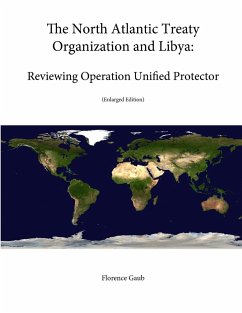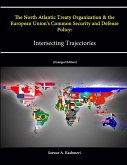On March 17, 2011, a month after the beginning of the Libyan revolution, with up to dead 2,000 civilians, the United Nations Security Council (UNSC) decided on backing a no-fly zone over Libya and authorized "all necessary measures" to protect civilians. While France, Great Britain, and the United States took immediate military action using air and missile strikes, considerations to hand over military actions to the North Atlantic Treaty Organization (NATO) emerged within days of the operation. On March 22 2012, NATO agreed to enforce the arms embargo against Libya; 2 days later, it announced to take over all military aspects of the UNSC 1973. On March 31, 2012, Operation UNIFIED PROTECTOR (OUP) began. OUP turned out to be one of NATO's shorter, and seemingly also less controversial, missions. Mandated by both the League of Arab States and the UN as the regime of Colonel Qaddafi was launching assaults on peacefully demonstrating citizens, its aim was to protect civilians from the air and sea.








